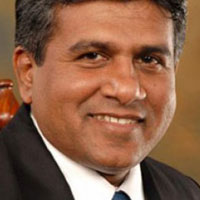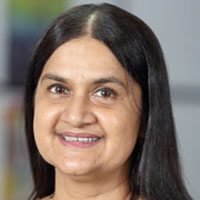Jan 31 2017.
views 692A moment of victory for womankind
The ‘rights of a woman’ have always been a topic of discussion in not only Asian countries but around the world as well. Although much progress has been made over the past few decades, women still remain to be one of the marginalised as well as vulnerable groups in society. With unpleasant encounters such as sexual violence, molestation and abuse, a woman is often stranded within the borders of any country. The concept of abortions has often been subjected to much debate when considering the ethical implications.
The strict criminalization of abortion or termination of pregnancies except to save the life of a mother as contained in the Penal Code of Sri Lanka has been identified as detrimental to the mental and physical wellbeing of the woman. Giving an opportunity for women to access safe and legal abortion procedures in certain identified circumstances is a matter of fulfilling the human rights of these victims. In turn these obligations would eliminate discrimination against women and ensure the realization of the right to enjoyment of the highest attainable standard of physical and mental health.
As this matter has raised concerns amongst a majority, Life Online spoke to a few individuals in varied fields of interest.
Existing legal framework in Sri Lanka
As stated in an Interim report of the Special Committee on amending the Penal Code and Code of Criminal Procedure Act, the Penal Code recognises the act of causing a miscarriage and the termination of pregnancy as an offence except as necessary in circumstances which endanger the life of the mother.
Section 303 reads:
“Whoever voluntarily causes a woman with child to miscarry shall, if such miscarriage be not caused in good faith for the purpose of saving the life of the woman, be punished with imprisonment of either description for a term which may extend to three years, or with both; and if the woman be quick with child, shall be punished with imprisonment of either description for a term which may extend to seven years and shall also be liable to fine.”
Section 304 reads:
“Whoever who commits the offence defined in the last preceding section without the consent of the woman, whether the woman is quick with child or not, shall be punished with imprisonment of either description for a term which may extend to 20 years and shall also be liable to fine.”
Section 305 states:
“Whoever, with intent to cause the miscarriage of a woman with child, does any act which causes the death of such woman, shall be punished with imprisonment of either description for a term which may extend to twenty years, and shall also be liable to fine.”
Section 306 reads:
“Whoever, before the birth of any child, does any act with the intention of thereby preventing that child from being born alive, or causing it to die after its birth, and does by such act prevent that child from being born alive, or causes it to die after its birth, shall, if such act be not caused in good faith for the purpose of saving the life of the mother, be punished with imprisonment of either description for a term which may extend to ten years, or with fine, or with both.”
Recommendations
Based on the preceding findings, the Committee makes the following recommendations:
a) Rape and incest
b) The pregnancy occurring in a girl below the age of 16 (a victim of statutory rape)
c) Serious foetal impairment
We went through a long process in acquainting the concerns: Dr.Wijeyadasa Rajapakshe

Speaking to Life Online, Justice Minister Dr. Wijeyadasa Rajapakshe said that he is positive about this decision. “We consulted the opinions of a panel of experts representing the medical, religious and other fields. Through this we are trying to save the life of the mother under three circumstances. I don’t think there will be much challenges since we went through a long process in acquainting the concerns. In another three weeks’ time we will be presenting this proposal in Parliament.”
A woman’s right to reproductive health is hers and hers alone: Visakha Tillekeratne

In her comments, women’s rights activist and Co-convener of Citizens for a secure Sri Lanka, Visakha Tillekeratne said that if the mother is a child, abortion should be done as early as two months. “It is up to the mother to decide what to do with her life and no other party, that is the family, spouse or doctor could force her to do an abortion. When I was born in Russia, abortions were not a new thing in that country. Anybody could go and do one. But here there is less coverage and awareness. This should start at school level and expand to reach out to the masses. After all, the woman’s right to reproductive health is hers and hers alone.”
Legalisation of abortions under special circumstances is a bit of a way forward: Dr. Pabasari Ginige

Speaking about this issue in detail, senior lecturer at the Faculty of Medicine, University of Peradeniya and Consultant Psychiatrist at Peradeniya Teaching Hospital Dr. Pabasari Ginige said that although the issue of abortions was discussed on earlier instances there weren’t many progressive steps taken due to stringent laws. “When living in a country governed by major religious concepts, we all value life. But as psychiatrists we can’t only be looking at the religion, caste or creed. The life of the unborn as well as the mother is of utmost importance. In my opinion women should have the equal right to do an abortion in Sri Lanka. The family, the government or any other party cannot interfere with her decision. In fact women should have the right to choice – let it be to get married, have a child, do a job or for any other choice. A woman cannot be irresponsible, get pregnant and then use abortion as a method of contraception. Therefore legalisation of abortions under special circumstances is a bit of a way forward.”
Speaking further she said that there are seven reasons for abortions around the world. “Abortions are done to save the mother’s life – this is the only provision which we can use at present, to preserve a woman’s physical health, to preserve a woman’s mental health, due to rape or incest, foetal impairments, economic or social reasons and genetic issues. Also in the case of minors or mentally challenged mothers, the significant other or the family could take a decision as to whether she could undergo an abortion. In the new legislation the concept of abnormal foetuses too is covered. This is a way of showing some respect towards the mother. We also need to spread awareness and educate people on sensitive issues such as these in order to give them more insight.”
Stringent laws would encourage mothers to do illegal abortions leading to fatal results: Thushara Ranasinghe

Executive Director of the Family Planning Association, Thushara Ranasinghe said that the Sri Lankan Penal Code on abortion is quite archaic. “We cannot move forward with archaic laws because they may not suit the prevailing circumstances. We hear a lot about sexual violence and an abortion would be the obvious choice in most instances. Therefore relaxing the laws would give them a chance to get rid of some burden. In addition to that there are instances when there are foetal impairments and again due to the law the gynaecologist cannot allow the patient to do an abortion. The life of the mother should be preserved and there is a debate about pro-life versus pro-choice. The bad side of imposing stringent laws is that it gives a chance for the mothers to do illegal abortions which could lead to fatal results. Most illegal abortions are not properly monitored and mothers have a high risk of losing their fertility as well.”
0 Comments